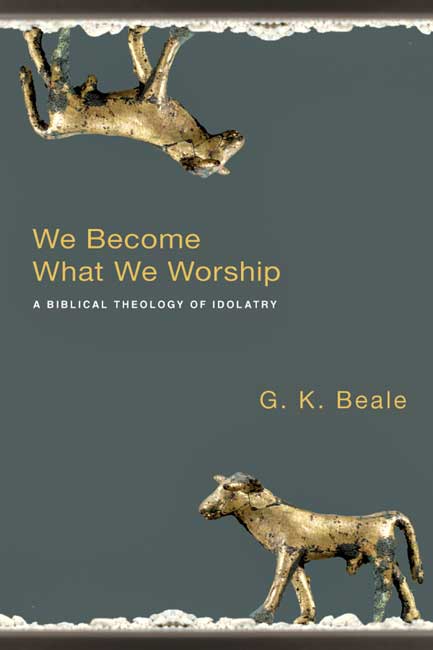Download The Free Guide
Discover practical conversation skills to get unbelievers thinking and make way for the Spirit’s work in their lives.
"*" indicates required fields
 I am not against television per se, but I am a firm believer that the cumulative effect of many hours spent watching TV is a spiritual and mental dullness that can rob a Christian of the ability to think biblically, and therefore, to live biblically.
I am not against television per se, but I am a firm believer that the cumulative effect of many hours spent watching TV is a spiritual and mental dullness that can rob a Christian of the ability to think biblically, and therefore, to live biblically.
Greg Beale states this so eloquently in his recent excellent book on idolatry, in which he makes the point of Psalm 115:8—that those who worship idols become like the thing they worship. That is, the idols of our hearts, against which we are warned in 1 John 5:21, change us, as we give ourselves to them. The greatest deception in the world since the Fall has been that people can worship gods beside Jehovah without being destroyed in the process. Beale, then, applies this principle to television-watching today:
Many Christians watch television, and many watch it when they want to sit back and relax and not have to use their minds much. This can certainly be a form of relaxation, but it can also become an uncritical openness to the media’s worldview. Subtly, unconsciously, we absorb this worldview by a kind of mental osmosis. And what is the typical TV worldview? It is a worldview with little to no awareness of, or sensitivity to, God’s working in everyday life, in the details of our life.
Have you ever heard a TV character say, “Well, let’s look at Scripture and see what God says about this. Let’s pray about this”? Or when have you heard someone on TV say, “Let’s go to the pastor and learn what the Bible says about this problem”?…
The absence of God in mainstream media should alert us to the fact that when we uncritically leave ourselves open to the perspective of the media’s worldview, then slowly but surely, it leads us to cease thinking of the things of the Lord in the details of our everyday life. In this worldview, God is not active in the specific affairs of the world or in our individual lives.
At this point you may be thinking, “Yes, but the shows I watch are not that bad! I don’t watch shows with immorality, or extreme violence or profanity.” (That’s how I was starting to justify myself when I was reading this!). But Beale proceeds to show why this is, in fact, so dangerous to our hearts and minds:
And when we imbibe this worldview uncritically, it makes us feel a little bit abnormal, a little bit unnatural in relating to God and being sensitive to his sovereign activity in our daily life. We may even feel awkward mentioning this to anyone, whether to believers or unbelievers. I would dare say that many Christians have been more influenced by the media than they would admit. The media’s worldview has subtly become an idol we easily reflect. And that mindset–that God is not active in the daily affairs of people–can destroy us. What we revere we resemble, either for ruin or restoration.
Greg K. Beale, We Become What We Worship: A Biblical Theology of Idolatry (IVP, 2008), 299.
Wow, this is convicting. If you, like me, at times fail to speak freely of God’s working in your life to believers or unbelievers alike, it could very well be that you have been made to believe that such expressions are abnormal, and are best kept to yourself. This influence may come from many sources, but it is certainly pervasive on television. What a contrast between the way life is lived in the community of a Spirit-filled, Scripture-centered church, and the way it is lived in the world! But how often have we adopted the more reserved and silent worldview, resulting in the absence of God in our speech because that is where we truly live. In this case, our spiritual expression in church on Sundays becomes the exception to our behavior, rather than the rule.
So here’s the challenge: let us cast off the deleterious effects of such an idolatrous worldview by any means necessary (Heb. 12:1-2). Whether the source is television programming, our friends and family, or even our reading material, let’s reject this empty worldview and return to a bold, verbal acknowledgement of the sovereign and ever-present working of God in our lives! In doing so, we will be returning to genuine worship of God, and as a result we will resemble what we revere to our own restoration.
by Jeffrey Mindler, Research Assistant “Therefore take up the whole armor of God, that you may be able to withstand in the evil day, and having done all, to...
by Jeff Mindler, Research Assistant “For the wrath of God is revealed from heaven against all ungodliness and unrighteousness of men, who by their...
When defending the faith against unbelievers, we want to strike at the heart of the unbelieving system of thought. We want to identify the main source of...